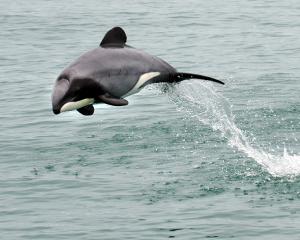As a result, the Government has directed the southern blue whiting fishery to use sea lion exclusion devices (Sleds) for the rest of the season.
''The fatality of 16 sea lions from fishing is unacceptable. We need to step up efforts to protect these endangered marine mammals,'' Conservation Minister Nick Smith said.
''We are requiring weekly reports on the fishery from officials. We are also asking officials to report on what other measures should be considered.''
Four more sea lions had been captured in that time and released. All were males and generally younger than breeding age, the industry said.
University of Otago zoologist Dr Bruce Robertson said while Sleds were a good solution in theory, there was no evidence they would ensure everything caught in nets got out alive.
''On the basis of that, using Sleds will probably mean it gets brushed under the carpet.''
Sleds were not used in flatfish fisheries but were in the Auckland Island's squid fishery.
This year, there was 100% observer coverage on the blue whiting fleet, compared with about 40% in previous years, which could account for the high number of deaths reported, he said.
''Any deaths by a large and long-lived species which is slow to reproduce is concerning.''
New Zealand Sea Lion Trust chairman Steve Broni said there had long been concerns the impact of by-catch was greater than the industry acknowledged.
The Government's sea lion science research programme had its funding drastically cut this year so the trust hoped the minister's concern would be translated into more funding for essential research around the Auckland and Campbell Islands.
''Let's be clear - we don't want the fishing industry to stop catching squid and southern blue whiting; we want them to stop killing sea lions.''
Forest and Bird marine conservation advocate Katrina Subedar said the deaths were very concerning, given the fishery was listed as sustainable.
''Should we be fishing in an area we know is occupied by a fully protected marine mammal? It is killing endangered species.''
Deepwater Group chief executive George Clement said the fleet was making every effort to avoid sea lion captures in the southern ocean after ''unprecedented numbers'' of them had arrived this season to forage around trawl nets.
''These are taking greater risks around our gear.''
The behaviour, which seemed to be more aggressive this year, came on the back of the second-poorest squid year in the 27-year history of the fishery, he said.
All vessel operators had agreed to use the Sleds and were minimising the time their fishing gear was on the surface to lessen the chance of sea lions being attracted to the nets.
''We are also working closely with MPI [Ministry of Primary Industries] to establish what might be causing the young males to be so far offshore in such numbers in order to identify further ways to avoid captures.''
As the dead sea lions were males, it would not greatly affect the population, he said.












